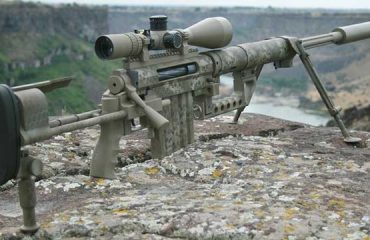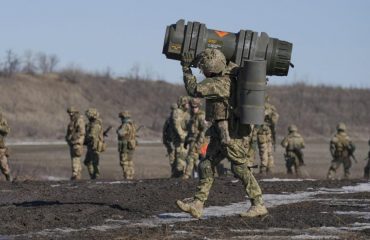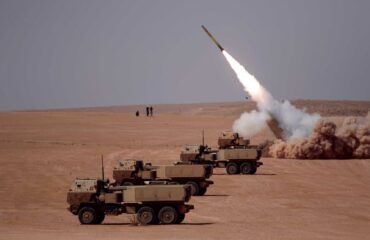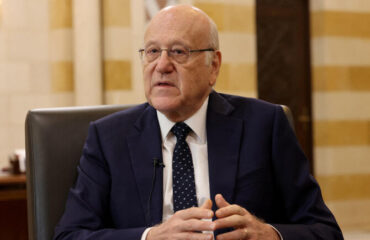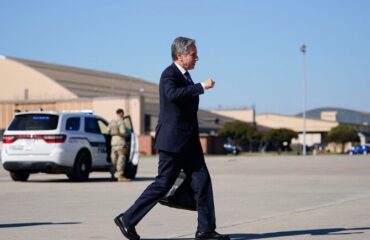Gaza ceasefire takes effect after five days of deadly fighting
Dozens of rockets were launched from Gaza towards Israel, prompting renewed air strikes, AFP correspondents in the territory said.

A ceasefire was in effect on the Gaza Strip Sunday, drawing people back into the streets after five days of cross-border exchanges killed at least 34 Palestinians and one Israeli.
The truce got off to a rough start after the final 30 minutes running up to the expected Saturday 10:00 pm (1900 GMT) deadline saw a volley of fire.
Dozens of rockets were launched from Gaza towards Israel, prompting renewed air strikes, AFP correspondents in the territory said.
Most of the rockets were intercepted by Israeli air defenses.
A few more rockets were fired after 1900 GMT, followed by fresh Israeli strikes, before things appeared to calm down.
Two rockets were fired from Gaza after 11:00 pm (2000 GMT) with no victims, the Israeli army said.
Egypt brokered the latest ceasefire, saying it had secured agreement from both Israel and the Palestinian militant group Islamic Jihad.
“Israel’s National Security Adviser Tsahi Hanegbi… thanked Egyptian President Abdel Fattah al-Sisi, and expressed the State of Israel’s appreciation for Egypt’s vigorous efforts to bring about a ceasefire,” a statement from the Israeli prime minister’s office said.
Israel’s response to the Egyptian initiative means “quiet will be answered by quiet, and if Israel is attacked or threatened it will continue to do everything it needs to do in order to defend itself,” he said.
A Palestinian source confirmed Islamic Jihad’s agreement.
“We want to thank Egypt for its efforts,” Islamic Jihad political department official Mohammad al-Hindi told AFP. He has been in Cairo since the fighting erupted on Tuesday.
‘What Have We Done?’
For days, life in Gaza and Israeli communities near the border has been a daily routine of air strikes and sirens warning of incoming rocket fire.
Residents in the crowded Gaza Strip cowered indoors as the fighting raged, with streets empty and only a few shops and pharmacies open.
“The whole Palestinian people are suffering,” Muhammad Muhanna, 58, told AFP in the ruins of his home. “What have we done?”
In Deir al-Balah in the central Gaza Strip, a dead donkey lay in the ruins of a row of buildings leveled in an Israeli strike.
“No one is safe in their homes,” said Imad Rayan, 64.
A spokesman for the interior ministry in Gaza said on the final day of its campaign the Israeli military had concentrated on “targeting civilians, residential and civilian buildings.”
There had been mounting calls for a ceasefire to be agreed, including from Israel’s closest ally, the United States.
The White House welcomed the agreement and commended Egypt and Qatar’s roles in defusing hostilities.
“US officials worked closely with regional partners to achieve this resolution to the hostilities to prevent further loss of life and restore calm for both Israelis and Palestinians,” White House Press Secretary Karine Jean-Pierre said in a statement on Saturday.
Egypt had kept up its mediation effort despite repeated setbacks.
On Saturday, shrapnel from a rocket fired from Gaza hit a building site in Sdot Negev, just over the border into Israel, killing one man and wounding another. Both were day laborers from Gaza.
Islamic Jihad said its fighters were pursuing “missile strikes on Israeli cities” in revenge for Israeli “assassinations” of their commanders and strikes on populated areas.
The exchange of fire came after the Palestinian health ministry reported the death of two men aged 19 and 32 in an Israeli army raid on a refugee camp in the occupied West Bank city of Nablus.
Palestinian president Mahmud Abbas‘s Fatah movement said the two men killed in the raid were members of its armed wing, the Al-Aqsa Martyrs Brigades.






